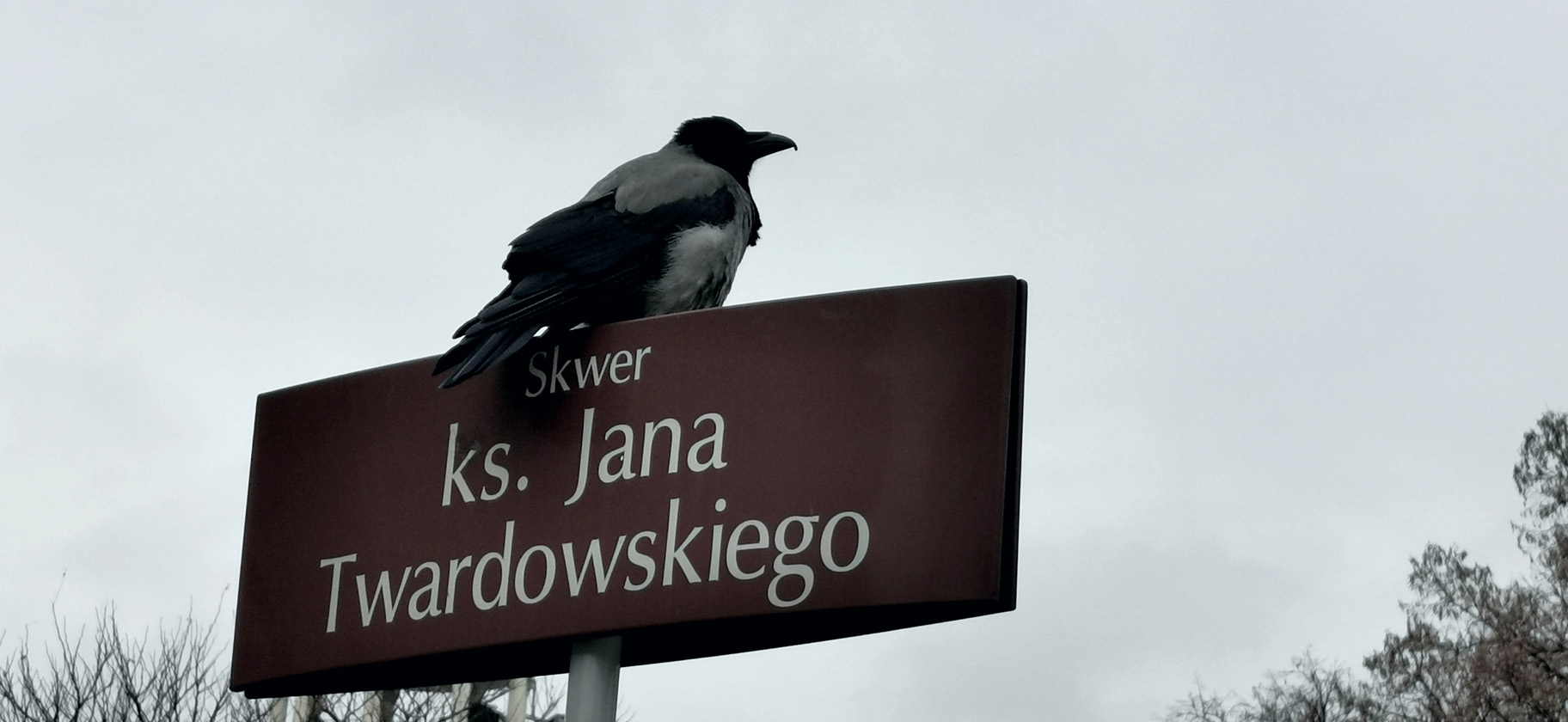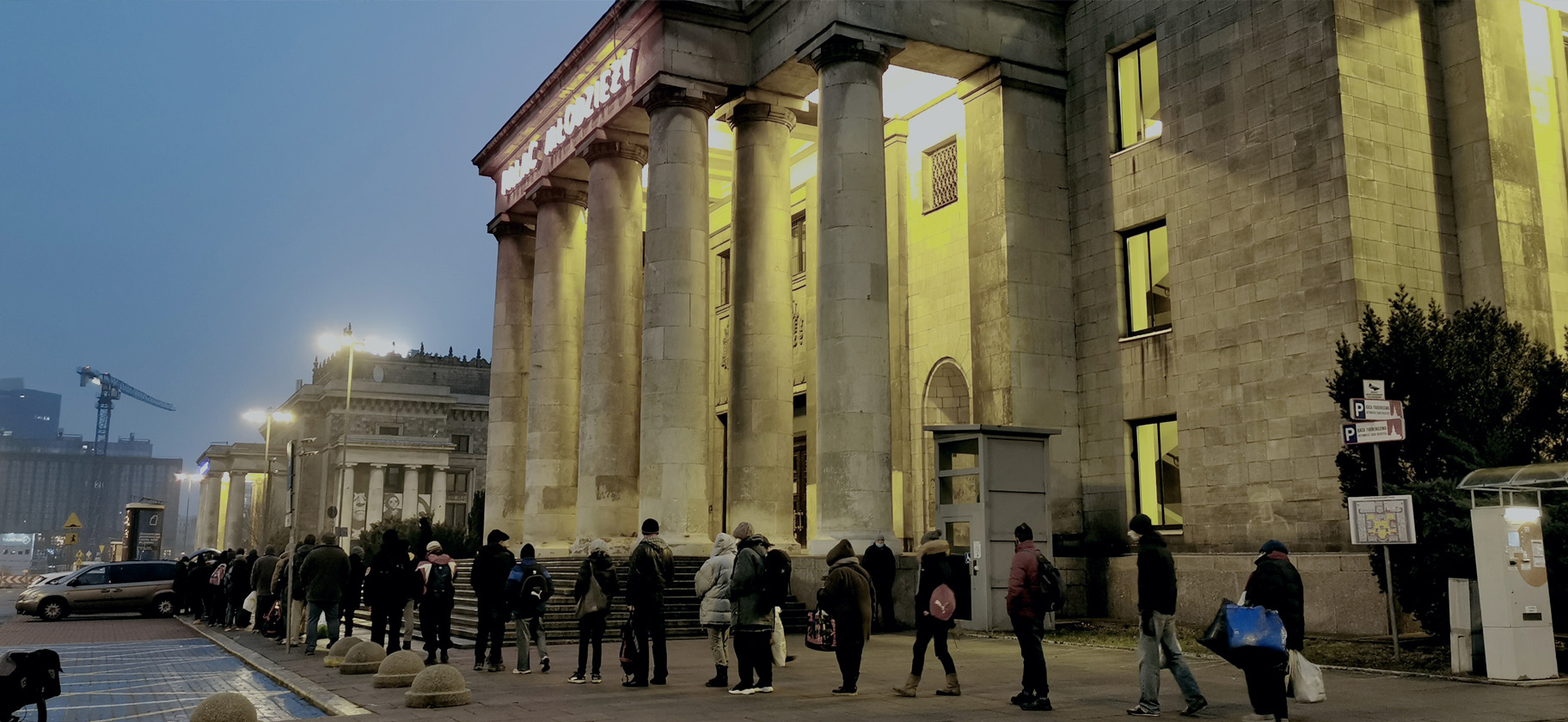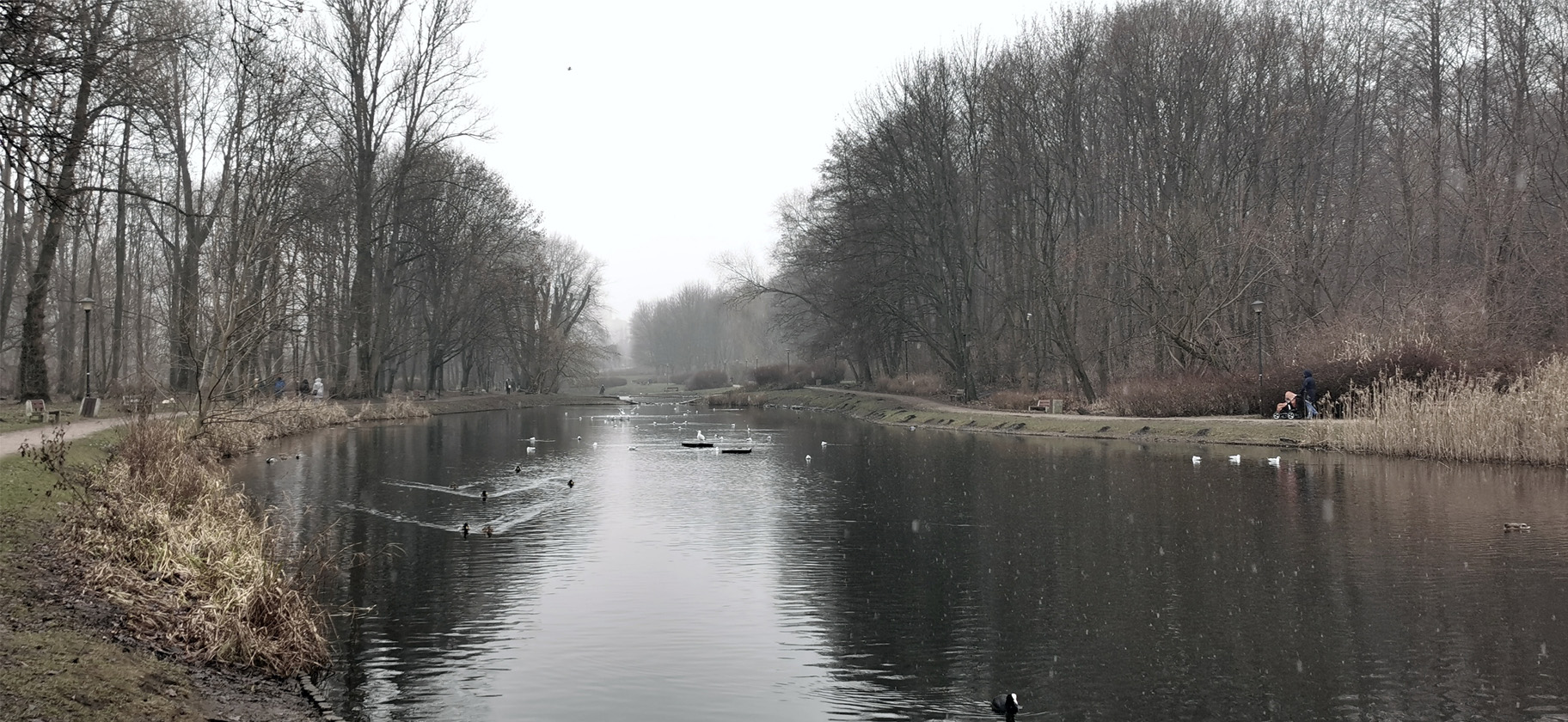Warsaw

I awoke in Malmö on January 7th, 2021 and turned on the news to see the United States Congress still in session. It was passed midnight with a contingent of Republican senators objecting to voting procedures in several states and reticent about certifying Joe Biden’s electoral college win. The certification process had been delayed several hours after an angry mob had stormed the United States capitol building and ransacked the hall and the chambers of several congressmen and women. As many as five people had died during the insurrection. It was such a profound and shocking rebuke of modern democracies that could have consequences for years to come, and it was difficult to tear myself away from the television, but I had a plane to catch.
After three months of travelling Scandinavia, it was time to move on. In that time, the second wave of coronavirus was wreaking havoc in countries around the world and many had banned travel outright or made it so restrictive as to make entry almost impossible – as had happened to me when I tried to enter Finland. After a ten-day quarantine in Oslo and a full 14 days of isolation in Luleå after catching the virus, I was keen to travel somewhere that was not going to impose any such restrictions as well as offer me a corridor through which to travel east. Copenhagen had affordable daily flights to Warsaw and travellers with Schengen passports could enter without being required to quarantine so I seized on the opportunity.
Both Copenhagen and Warsaw airports were eerily quiet but it made the travel experience incredibly easy. There were no lines at check-in and never in my life had I ever passed through security at an airport so quickly. I had a whole row of seats on the plane to myself and after landing I was able to disembark and exit the airport within 10 minutes since there were no controls at immigration for a flight arriving from within Europe.
Having been in Sweden for most of Europe’s second wave I had been sheltered from the full effects of what had been going on elsewhere on the continent. Sweden had suffered. Thousands had died and Sweden’s reputation around the world had been damaged by the media keen to spin their loose “recommendations” as negligent from a public health perspective. I had spent almost two months in Sweden and had suffered through the virus myself, but life in Sweden, whether you were sick or not, always felt normal. There was reasonable concern about what was going on and a healthy respect for what the virus was capable of, but you could leave your home, walk down the street, and just hop into a store or a restaurant like it was any other day. Arriving in Warsaw, I was about to get a wake-up call as to what life was like in other places.
When I first visited Poland in 2003, it had just voted to become a member state of the European Union. Most foreigners still needed a visa to enter the country but, with my Hungarian passport, I could enter for free. Optimism was high and the country had not been fully discovered by tourists so it attracted some of the best travellers. Some of my most cherished travel memories from my twenties were from that visit and I still often find myself telling stories about the time I spent there.
I remember sitting in the town square in Poznan having lunch when I was approached by a homeless man who asked if he could have something to eat. Poland was one of the first Eastern European countries that I visited where I was able to really get a lot for my money so I invited him to sit and eat some bread and kielbasa with me. I spoke no polish and he spoke no English, but everyone understands generosity. At one point he left me and went off running to the other side of the square. A representative from the Kinder candy company was handing out samples and he brought back a bunch for us to share. We sat in silence enjoying the October sunshine of midday and smiling at each other as new friends.
Everyone in Poland, it seemed, was friendly and wanting to talk to me whether we could communicate in a common language or not. Everybody smiled and hugged and kissed each other to say hello or goodbye. If I needed directions on how to get somewhere, instead of trying to instruct me using their words or draw a map, those willing to help would grab me by the hand and start pointing at things and speaking in Polish and eventually lead me to the exact thing I was looking for. In 2003, I fell in love with Poland.
Flash forward to my arrival in Warsaw 18 years later and the situation had changed. Poland’s second wave had been particularly devastating with deaths at one point averaging more than 500 per day in late November and early December – right about when I was sick with my own case. Though European travellers could enter and were not obligated to quarantine like in some other countries, as a response to rising infections the government had instituted a number of strict lockdown measures. Restaurants and bars were closed indefinitely and there was a mask mandate throughout the country. Previously, I had understood mask mandates to only include public settings like in shops and while riding public transit, but in Poland, masks were to be worn everywhere. I was so concerned with avoiding quarantine that I had not noticed some of the other protocols that the Polish government had put in place, namely that hotels and temporary accommodations were only allowed to rent rooms to certain qualified people like flight crews, medical professionals, and diplomats. Nowhere did it list exceptions for coddiwompling digital nomads.
The government can impose lockdown measures in the name of public safety, but what the local people impose on themselves is an entirely different matter. Beyond the destruction wrought by the pandemic, Poland had been suffering in recent years in other ways. Since the initial euphoria after Poland’s inclusion in the European Union, the country had seen itself become politically divided. There were rising right-wing movements and growing mistrust between the people and their government which led to the women’s strike, protesting a court ruling effectively removing a woman’s right to an abortion, that began on the 22nd of October 2020 right as the virus’ second wave was gaining momentum. Smiles were gone. Optimism had been dashed. People ducked their heads and avoided eye contact. Nobody grabbed my hand to show me where to go when I was lost and if I asked for help most would wave me away like I was a monster or simply walk off in the opposite direction. The sense of fear was palpable.
Warsaw is a sprawling industrial city with many neighbourhoods consisting of long grey blocks of communist-era apartments and right as I arrived the whole city clouded over in a dark grey as the first snows of winter began to fall. Many businesses were boarded up and there was a noticeable police presence in the streets. Restaurants were attempting to make ends meet by offering meal deals for takeaway and industrious entrepreneurs had set up makeshift kiosks selling chic protective masks.  The pandemic had put many out of work and lineups formed throughout the city awaiting vans of generous citizens passing out essentials to the needy. Those who were out in the streets in couples or groups didn’t speak. They tucked their chins into their coats and kept their arms folded. The pathways through parks had turned to mud and the streets were filled with sloppy ash grey slush. There was a constant low roar from the traffic, like the sound of a running radiator, that droned in harmony with the passing of the city trams. That monotonous hum was the only audible sound of life in the mid-city until all of it was broken by the sinew-splitting timbre of an ambulance siren speeding down the boulevard.
The pandemic had put many out of work and lineups formed throughout the city awaiting vans of generous citizens passing out essentials to the needy. Those who were out in the streets in couples or groups didn’t speak. They tucked their chins into their coats and kept their arms folded. The pathways through parks had turned to mud and the streets were filled with sloppy ash grey slush. There was a constant low roar from the traffic, like the sound of a running radiator, that droned in harmony with the passing of the city trams. That monotonous hum was the only audible sound of life in the mid-city until all of it was broken by the sinew-splitting timbre of an ambulance siren speeding down the boulevard.
Poland had become a gruesome shadow of the country I remembered and now it had indelibly imprinted new unshakable memories that were considerably more grim and unwelcoming. At the same time, my plans to travel eastward began to vanish. Now that I was back on the continent and I began to more deliberately investigate my options I learned that they were few. Russia can be a tricky place to enter without a raging pandemic and they had stopped issuing visas months ago with no sign of reopening. Ukraine had open doors, but bureaucratic health hoops to jump through, and there was no word on land border crossings. It might have been possible but it would probably be a headache. I had been far more optimistic about how countries would handle a second wave and the results now that it was upon us were disappointing. Instead of seeming more prepared and capable of loosening restrictions, it seemed that we had become complacent and incapable of responding except in a way that imposed even greater restrictions. My heart sank. I would not be able to find the route through to the east as I had hoped. At least not for now.
I travelled out to the Wierzbno neighbourhood in search of a used English bookstore. Nearby was a small park where I decided to go for a short stroll right as it began to snow. I had had enough and, now that I found myself in a green space, I removed my mask deciding that I would happily comply if anyone gave me a hard time. A few people were walking their dogs and, taking cues from the pervasive sense of distrust, the dogs would immediately and ferociously attack each other.  An old woman trudged through the mud along the path carrying groceries at a pace that would take more than an hour just to traverse the park and I couldn’t help but think that this must be her lone activity for the day. She was passed at high speed by a jogger in a fluorescent suit who stood out amidst the sagging trees and the wall of grey sky. A woman was pushing her child in a pram along the small stream that ran through the park while an old man sat alone on a bench with large flakes of snow beginning to collect on him while he smoked a cigarette. This was not the glorious winter landscape I had envisioned. It was winter of the spirit.
An old woman trudged through the mud along the path carrying groceries at a pace that would take more than an hour just to traverse the park and I couldn’t help but think that this must be her lone activity for the day. She was passed at high speed by a jogger in a fluorescent suit who stood out amidst the sagging trees and the wall of grey sky. A woman was pushing her child in a pram along the small stream that ran through the park while an old man sat alone on a bench with large flakes of snow beginning to collect on him while he smoked a cigarette. This was not the glorious winter landscape I had envisioned. It was winter of the spirit.
The coronavirus had left its mark on the whole world I began to realize that numbers do not always reflect how society is coping. I wondered if the daily joy I had sensed in Sweden had been muted in its own way or if Poland and its people had just stopped being able to handle everything being thrown at them. There was no way to trust what had become the prevailing spirit of the Polish people from so small a sample size and I knew that Warsaw could not stand alone as the representative of this visit. It was unclear what travel within the country would be like since there was a nationwide call to avoid any travel deemed non-essential, but I had to give it a shot.
As I was leaving the park, I came upon an art installation of parallel planes of green-tinted glass that altered the perspective of the surroundings as I walked past. Seeing the sudden green on grey made me chuckle. As I walked back into the city to catch the subway back to the centre I walked by a woman with a small child, a young girl no more than three years old, who was maskless but wearing a smile from ear to ear. This may have been her first time seeing snow and she could not have been happier about it. Because of her age, she was exempt from wearing a mask. She would have known nothing about the coronavirus and to her, seeing the whole world including her mommy, wearing a mask might have been her idea of normal. She was skipping in her boots and snowsuit and cooing at everything she saw. She saw me and looked at me quizzically for a moment until she realized that I also was not wearing a mask. She smiled and waved and said, “dzien dobry!”. In that little girl’s smile was the Poland I remembered. She was curious and completely unafraid. The world was there to be discovered and she was going to discover it and allow everyone to see her smile no matter the circumstances, and so was I.